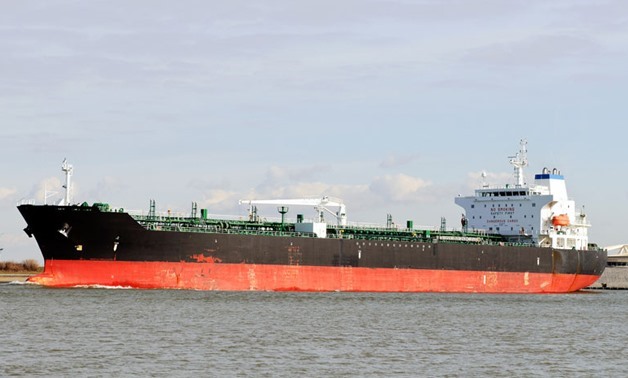
Oil Tanker in Abu Dhabi port - Creative Commons Via Wikimedia
SINGAPORE - 8 June 2017: Abu Dhabi Petroleum Ports Authority has re-imposed a ban on oil tankers linked to Qatar calling at ports in the United Arab Emirates, reversing an earlier decision to ease restrictions, and potentially creating a logjam of crude cargoes.
The Port Authority circular was issued late on Wednesday and seen by Reuters on Thursday. It states: "Denial of entry into any of the Petroleum Ports, for all vessels arriving from, or destined to Qatar, regardless of its flag." That was followed by a notice from the UAE's state-owned Abu Dhabi National Oil Company (ADNOC) on Thursday with the same language also seen by Reuters.
The ban on all vessels carrying the Qatari flag and vessels owned or operated by Qatar remains in place and those ships will not be allowed into its petroleum ports, the port authority circulars said.
The Abu Dhabi port authorities had eased the restrictions just a day earlier.
The ban would potentially disrupt the common industry practice of co-loading oil cargoes from different countries onto a tanker to lower the costs of shipping. Preventing the co-loading of Qatari and other Middle East grades could add to refiners' transport costs and create logistical jams.
"ADNOC has officially confirmed that we cannot co-load to and from (Qatar). So we need to find new vessels, then find co-loadings around the region," said a source from an Asian refiner.
Qatar is among the smallest of the Middle Eastern oil producers and refiners will load crude from there alongside bigger suppliers such as Saudi Arabia, the world's biggest crude exporter, and the UAE.
Re-tightening the restrictions on ships to and from Qatar will exacerbate the logistical issues that started on June 5 when Arab countries including Saudi Arabia, Egypt, the UAE and Yemen severed ties with Qatar for allegedly funding terrorism.
"This is the only thing that really matters - Qatar doesn't have that many vessels and most of their exports are co-loaded with other crudes," the second shipbroker said.
Despite the official ban, industry sources in both the Middle East and Asia indicated that the co-loading of Abu Dhabi crude along with Qatari oil may continue on a case-by-case basis.
Customers under long-term contracts with ADNOC for crude may be given exemptions to the ban at ports including Das Island and Fujairah as long as the co-loaded cargo is not only from Qatar since ADNOC does want to upset those customers, said a Middle East-based industry source.
Traders and refiners may explore alternatives like chartering smaller tankers or consider ship-to-ship (STS) transfers in the region to deal with the ban.
"It's gotten to the point where we just want this to be over... we are scrambling again," said a second Singapore-based shipbroker, adding that STS transfers could occur at designated areas offshore Oman.
Comments
Leave a Comment